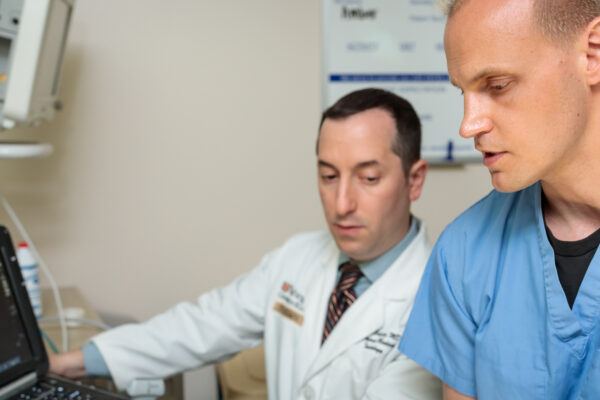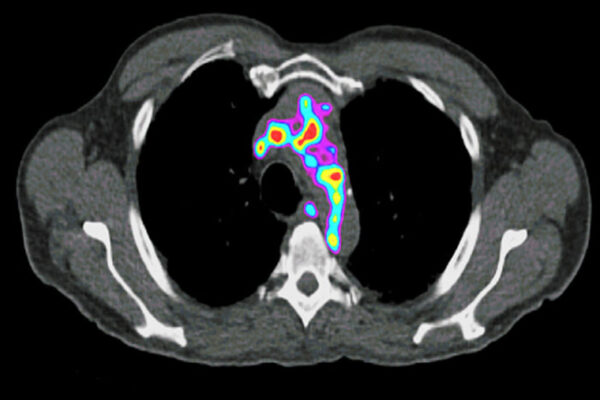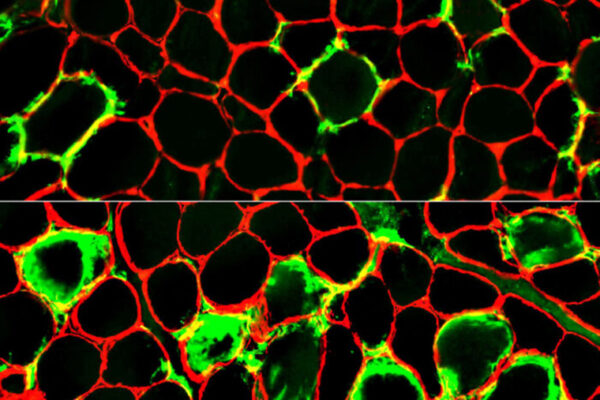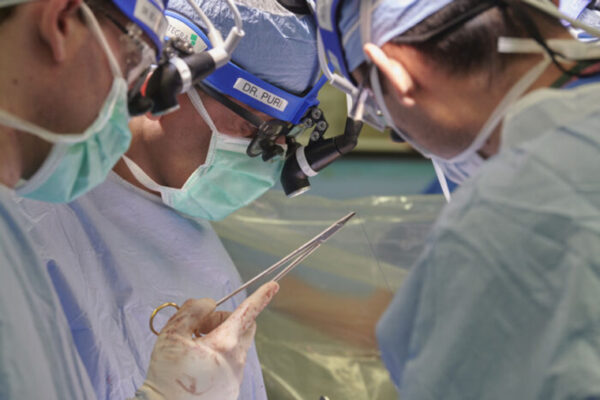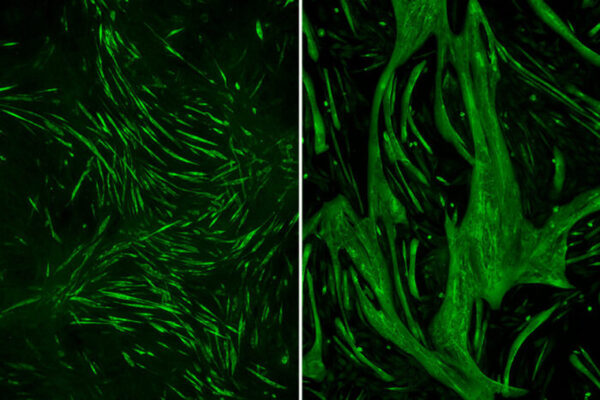‘I understand people feeling desperate’
Just shy of 36 and a father of four, Weston McCarron isn’t your typical medical student. The Idaho native’s low-income rural roots and family trauma helped shape him and put him on the path to emergency medicine.
Drug-resistant tuberculosis reversed in lab
Mycobacterium tuberculosis cause the most lethal infectious disease in the world. Researchers at the School of Medicine and Umea University in Sweden have found a compound that can prevent and even reverse antibiotic resistance in tuberculosis bacteria.
$5.1 million to target silent cause of heart attacks, strokes
The School of Medicine’s Yongjian Liu has received an Emerging Investigator Award to find ways to detect plaque at risk of shedding fragments that could cause heart attacks or strokes.
Antibiotics may treat endometriosis
Researchers at the School of Medicine have found that treating mice with an antibiotic reduces the size of lesions caused by endometriosis. The researchers are planning a clinical trial to test the strategy in women who have the painful condition.
Newfound autoimmune syndrome causes muscle pain, weakness
School of Medicine researchers have identified a previously unknown, rare muscle disease that can be treated with immunosuppressing drugs.
Wearable motion detectors identify subtle motor deficits in children
A wristwatch-like motion-tracking device can detect movement problems in children whose impairments may be overlooked by doctors and parents, according to a new study from Washington University School of Medicine in St. Louis.
Despite health warnings, Americans still sit too much
A new study led by the School of Medicine shows that most Americans spend a lot of time sitting, despite public health messages that prolonged sitting is unhealthy. Such inactivity increases the risk of obesity, diabetes, heart disease and certain cancers.
New rules for lung transplants lead to unintended consequences
A policy change regarding the rules of lung distributions for transplants has had several unintended consequences, according to a new study from the School of Medicine.
Lithium boosts muscle strength in mice with rare muscular dystrophy
Removing one gene caused normal muscle muscle fibers to grow to three times their normal size. Researchers at the School of Medicine have found that targeting a protein related to that gene with lithium can reduce muscle wasting in a rare form of muscular dystrophy.
Flaw in many home pregnancy tests can return false negative results
Pregnancy tests can sometimes give a false negative result to women several weeks into their pregnancies, according to research by Ann Gronowski, professor of pathology and immunology at the School of Medicine. Her findings led the FDA to change its standards for evaluating new pregnancy tests, but old tests with the false-negative problem are still on the market.
View More Stories
